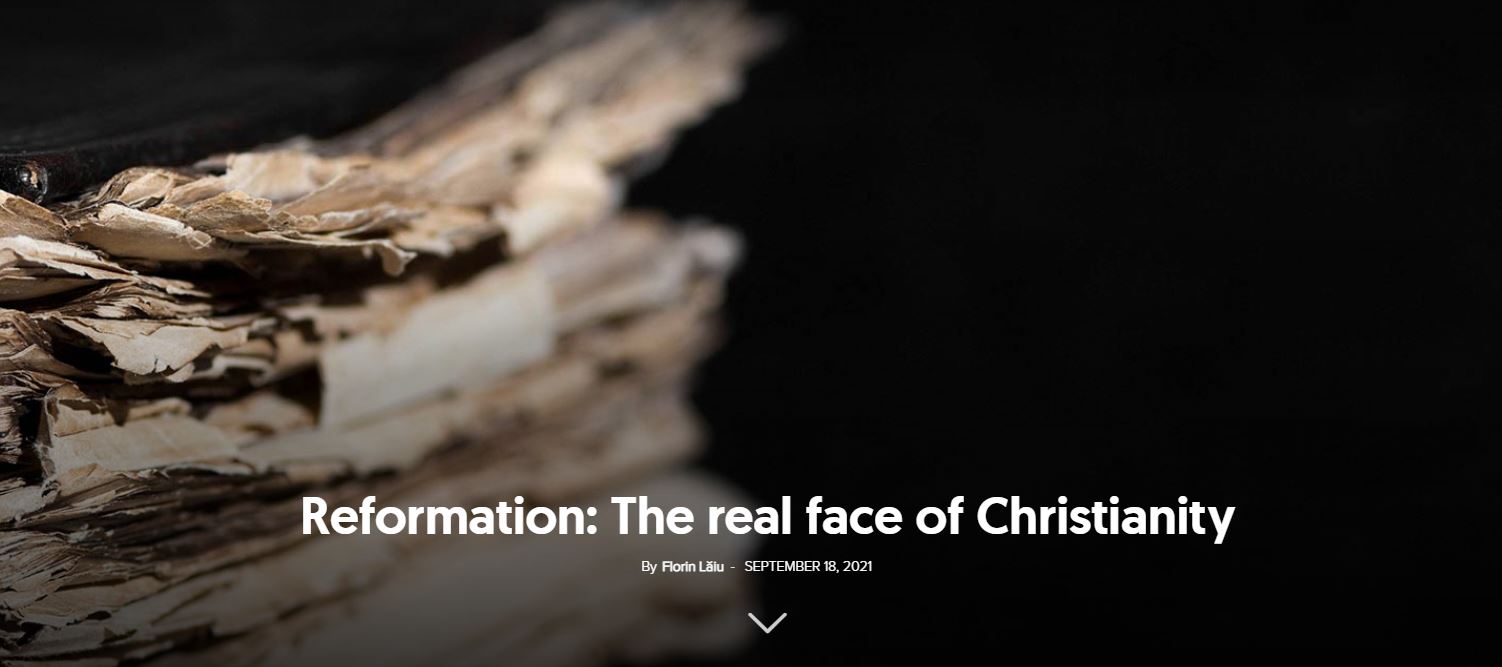In November 2014, Smithsonian Magazine included Ellen White, the co-founder of the Seventh-day Adventist Church, in the top 100 most significant American personalities of all time.
The Smithsonian’s list was based on research by Steven Skiena and Charles B. Ward, who analysed data from the English Wikipedia site and more than 15 million books scanned by Google. Moreover, Cambridge University Press published their research in a paper entitled Who’s Bigger?: Where Historical Figures Really Rank.[1]
For her contemporaries, Ellen White was neither a comfortable nor an easy-to-ignore character. Her voice was often raised not only in defence of the faith or dogmas of Adventism, but also of social causes that were debated in society at that time, such as the situation of people of colour, poverty, or alcoholism. Although she did not take part in political debates, by word of mouth and by example she encouraged active involvement in matters which she considered to spring from Christian morality, and were important to the society to which she belonged.
That is why her activity and opinions on these topics are a useful case study that can help us define our own life philosophy regarding our involvement in social issues today.
Ellen White never separated theology from practice. For her, involvement in helping those in need was a result of understanding the value of the human being from the perspective of Christ’s sacrifice. “Souls who have cost the life of God’s only begotten Son must be estimated in value by the immense ransom paid for them; and rich or poor, black or white, must be treated in respect to the value Christ has placed upon the human soul.”[2][3] We can consider this statement a fundamental axiom of how she understood one should relate to the disadvantaged categories of her time: people of colour and the poor.
In 1861, when the Civil War broke out, Ellen White was 34 years old. Seventeen years had passed since the Great Disappointment of October 22, 1844, and, among those who had not given up the faith after that dramatic event, a new religious movement was being outlined that would organize itself, two years later, as the Seventh-day Adventist Church. Ellen White and her husband James White were seen as authoritative voices.
However, her statement in 1859 was nothing short of shocking to Adventist believers: “The law of our land requiring us to deliver a slave to his master, we are not to obey; and we must abide the consequences of violating this law. The slave is not the property of any man. God is his rightful master, and man has no right to take God’s workmanship into his hands, and claim him as his own.”[4]
Ellen White clearly described an intentional intervention in defence of the oppressed, a choice of disobedience to civil law, taking on all legal consequences, motivated by the need to defend the value of a disregarded human being.
After the end of the war and the abolition of slavery, Ellen White spoke more and more about the “duty” that white Christians had toward people of colour. The words she would choose always showed that the responsibility for this category of population was also a work of restitution for the injustices to which these children of God had been subjected. “The obligation to work for the coloured people rests heavily upon us. Shall we not try to repair, as far as lies in our power, the injury that in the past has been done to these people?”[5]
This reparation included tangible elements: the establishment of schools and medical institutions, the construction of churches, the training of the laity, and supporting pastors of colour.[6]
Reading these lines, it is challenging to picture a faith community that takes these pieces of advice seriously, getting involved in educating a disadvantaged population, setting up medical institutions for this group, or preparing spaces where they can worship together. Ellen White’s statements did not remain utopian—her son, Edson White, became a pioneer of the work among people of colour. His ship, the Morning Star, travelled for a long time on the Mississippi River to help and educate people of colour willing to receive this help.
And where the prejudices and ambitions of some would limit the possibilities of far-reaching actions, leading by example was key. “Let us as Christians who accept the principle that all men, white and black, are free and equal, adhere to this principle, and not be cowards in the face of the world, and in the face of the heavenly intelligences. We should treat the coloured man just as respectfully as we would treat the white man. And we can now, by precept and example, win others to this course.”[7]
The constant return to the idea of treating others with respect, as a gesture of courage, highlights a pattern of Christianity we ourselves should aim for today.
To further emphasize the concern for the poor or disadvantaged, Ellen White says, “Christ took a position which was on a level with the poor, that through His poverty we might become rich in beauty of character, and be, as He was, a savior of life unto life. By becoming poor He could sympathize with the poor.”[8]
Jesus’s identification with the poor is not a form of discrimination against the rich, nor is it an ignorance of their needs. On the contrary, Jesus was sometimes the guest of rich people, and among His followers were many who enjoyed an enviable economic status. The fact that in Christian theology it is considered that, of all the possibilities in the world at that time, Jesus came as a poor man, choosing the lowest social status, has ennobled the human being, proving that the lowest status in the eyes of society is not ignored by God.

That is why “Christianity is the solace of the poor,”[9] because “Christ has ever been the poor man’s friend. He chose poverty, and honoured it by making it His lot. He has stripped from it forever the reproach of scorn by blessing the poor, the inheritors of God’s kingdom.”[10]
The implications of this statement are not limited to the soul. Ellen White never wanted to imply that the rich are not recipients of the gospel or that they would not need faith because they have their financial resources. This solace for the poor comes not only through the discovery of God’s unimaginable love, but also through its exemplification among His followers. Christianity is alive not so much through its dogmas, but especially through the people who live them out.
Ellen White not only talked about helping the poor, but she and her husband were always ready to help those in need. George R. Knight, who taught church history at the Adventist Theological Seminary at Andrews University, said: “Not only was Ellen White generous in supplying food and clothing to those less fortunate than herself, she generally had a few needy people living under her roof”.[11]
We could also mention her special concern for orphaned children. In a time when illness often brought an end to life unexpectedly and prematurely, it was no surprise that sometimes children buried their parents at an age when they still needed their support and care. She calls caring for these children “a holy mission”,[12] encouraging church members to be ready to receive them into their homes and to educate them in the Christian spirit desired by their parents.
Ellen White presented this concern for the needs of the poor or disadvantaged as a personal responsibility, not as a critique of officials. From her perspective, no matter what and how much the political or administrative authorities do for the needy and disadvantaged, the community of faith has its own responsibility, first to those in its midst, then to the world around it.
There was, however, a cause in which she became involved not only by encouraging the church to act, but also by supporting those who asked the state to take a stand on their side. The cause is one that stirred controversy then and continues to stir as much controversy today—the ban on the sale of alcohol.
As is well known, Ellen White and Joseph Bates were among the first to speak in the Adventist Church about abstinence from alcohol and a healthy lifestyle. Believers have adopted this way of understanding the Bible, resolutely avoiding the consumption, production, and sale of alcoholic beverages in any form. Thus, when the American society raised the issue of a law banning any form of trade in alcoholic beverages, Adventists discovered that they were already on the side of those who were in favour of prohibition.
Not only did Ellen White acknowledge the justness of this case, but she was personally involved in supporting it. In an article published in the Adventist magazine Review and Herald on February 10, 1885, she recounts an occasion in which she was invited to address the students of the “Martha Washington” girls’ college on the subject of temperance, explaining: “Although its friends do not believe with us on many points of doctrine, yet we will unite with them when by so doing we can aid our fellow men. God would have us individually learn to work with tact and skill in the cause of temperance and other reforms, and employ our talents wisely in benefiting and elevating humanity”.[13]
White would attend many meetings at temperance societies and would speak many times on these occasions, being an excellent advocate for abstinence. From her perspective, abstinence was desirable to contribute to the reduction of the numbers of those living in poverty, to the improvement of the lives of many families, and to the reduction of crime.
The motivation for “elevating humanity” in a community of faith that preaches the imminent coming of Christ, against the background of the obvious signs of the moral degradation of the world, may seem paradoxical. Why elevate a humanity that will soon collapse (according to the biblical eschatological view)? Ellen White’s perspective on Christian philosophy is significant at this point.
Without reducing theology to charity, but also without making charity the centre of theology, it elevates the dignity of man, created in the image of God, as a sufficient argument for respect and care. Like Job, who cries out to his friends, “Anyone who withholds kindness from a friend forsakes the fear of the Almighty” (Job 6:14), Ellen White elevates man’s intrinsic value as an argument for love and involvement, because God chose to die for people.
The pinnacle of divine love challenges mankind to empathy and love, sacrifice and dedication, unity and interest; qualities that, even if they do not save the world from its prophesied end, can make people’s lives better and more beautiful. Evil, ugliness, destruction, even if prophesied by God in His foreknowledge, are not an inevitable fact of our world, or a reason to give up, but they can be an urge to aspire to something better, even in this world.
Norman K. Miles rightly observed: “The legacy that Ellen White left us is this: That our responsibility first and foremost is to prepare a people for the coming of Jesus. She believed that you couldn’t be prepared for His coming if you were ignorant, so we have to lift the veil of ignorance. She didn’t believe that you could please the Lord unless you understood that you had a responsibility to others.”[14] Indifference towards others and their needs is often one of the greatest temptations for those who, like the Pharisee in the parable, descend precisely from the place where they are supposed to have stood right in the presence of God—from the temple.[15]
Perhaps this is indeed Ellen White’s greatest legacy: the challenge to not be indifferent. The great gain of this revealing experiment, that we are encouraged to relive daily, is that by helping others and being of use to them, we bring into our own lives the fullness of living according to the image of God, which means happiness and contentment. Here is what Ellen White wrote down one day in her diary, after helping a friend who visited her: “Oh, if all knew the joy of giving to the poor, of doing good and making others happy! Lord, open my heart to do all I can to help those around me!”[16]




















